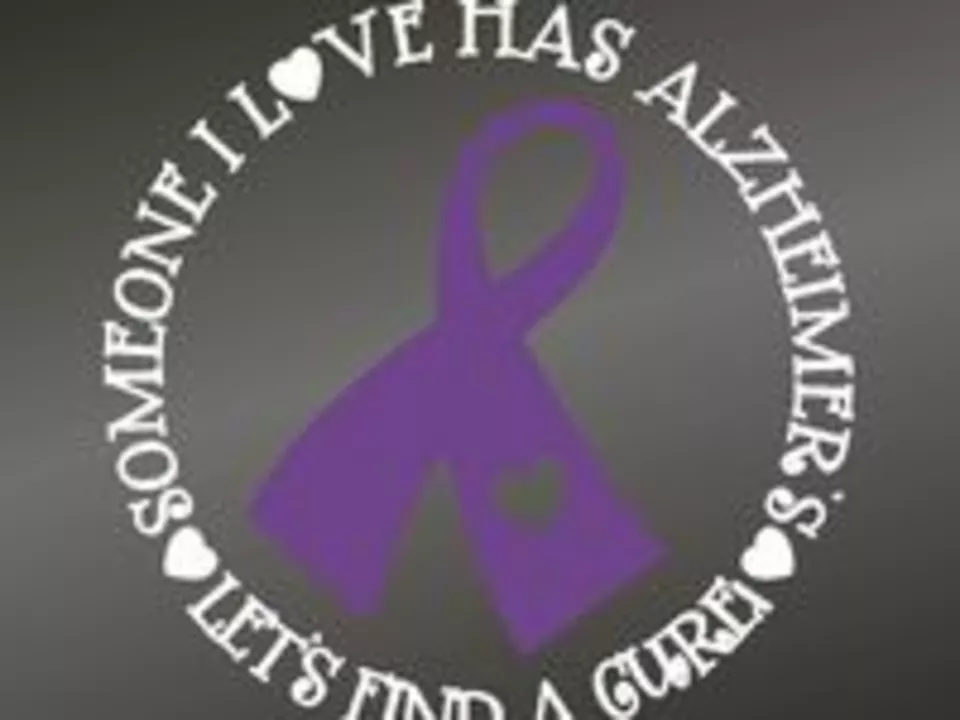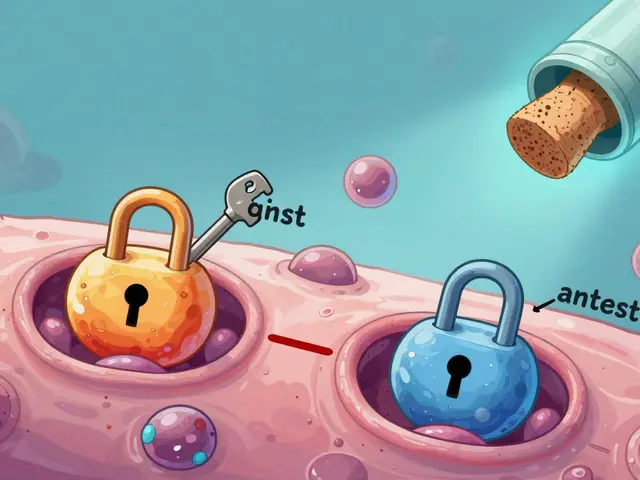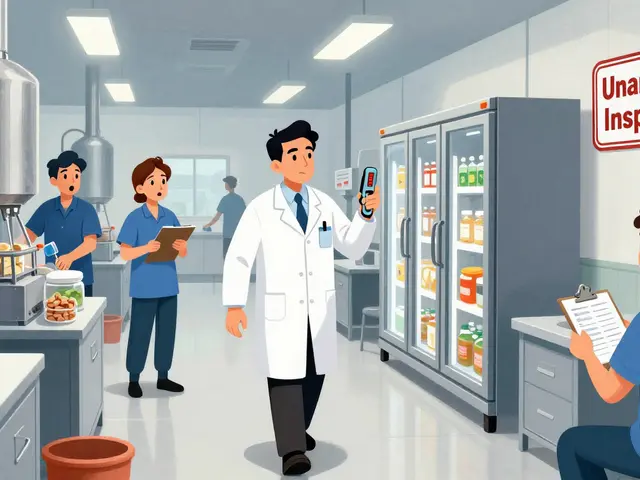
Understanding the Basics of Alzheimer's Dementia
Before diving into the importance of advocacy and raising awareness for dementia of the Alzheimer's type, it is essential to understand the basics of this disease. Alzheimer's is a progressive neurological disorder that primarily affects older adults, causing problems with memory, thinking, and behavior. This disease is the most common cause of dementia, which is a general term for a decline in mental ability severe enough to interfere with daily life.
Alzheimer's is not a normal part of aging; however, the greatest known risk factor is increasing age, and the majority of people with Alzheimer's are 65 and older. While there is currently no cure for Alzheimer's, treatments are available for symptoms, and research continues. Early detection and diagnosis are crucial for individuals with Alzheimer's, as it allows for better planning and access to available resources and support.
The Role of Advocacy in Supporting Alzheimer's Patients and Their Families
Advocacy plays a significant role in supporting individuals affected by Alzheimer's dementia and their families. As an advocate, your role is to educate, raise awareness, and support policies that improve the quality of life for Alzheimer's patients. Advocacy can take many forms, such as lobbying for increased funding for research, promoting early detection programs, or fighting for better access to care and support services.
By advocating for Alzheimer's patients and their families, you help to ensure that their voices are heard and that their needs are addressed. Advocacy efforts can lead to policy changes that increase funding for research and ensure access to quality care, ultimately benefiting those affected by Alzheimer's dementia.
Why Raising Awareness for Alzheimer's Dementia is Crucial
Raising awareness for Alzheimer's dementia is crucial for several reasons. First, it helps to dispel common myths and misconceptions about the disease. Many people mistakenly believe that Alzheimer's is a normal part of aging or that it only affects memory. By raising awareness, we can educate the public about the true nature of Alzheimer's dementia and its impact on individuals and families.
Second, increasing awareness can lead to earlier detection and diagnosis, which is essential for accessing appropriate care and support. Early detection enables individuals and their families to plan for the future and take advantage of available resources. Additionally, it allows for the opportunity to participate in clinical trials and contribute to Alzheimer's research.
How to Get Involved in Alzheimer's Advocacy and Awareness Efforts
There are many ways to get involved in Alzheimer's advocacy and awareness efforts. You can start by educating yourself about the disease and its impact on individuals, families, and society. Share your knowledge with friends, family, and colleagues, and encourage them to get involved as well.
Consider participating in local events, such as Alzheimer's walks or fundraisers, to raise awareness and support Alzheimer's research and care. You can also volunteer your time with local organizations that provide support and services to Alzheimer's patients and their families.
Finally, you can engage in political advocacy by contacting your elected representatives and urging them to support policies that benefit Alzheimer's patients and their families. This may include increased funding for research, improved access to care, or support for caregiver programs.
Impact of Advocacy and Awareness on Alzheimer's Research
Advocacy and awareness efforts have a significant impact on Alzheimer's research. By raising awareness and advocating for increased funding, we can help ensure that researchers have the resources they need to continue their work. This, in turn, can lead to breakthroughs in our understanding of Alzheimer's dementia, the development of new treatments, and ultimately, a cure.
Additionally, raising awareness about Alzheimer's dementia can help to increase participation in clinical trials. Clinical trials are essential for testing new treatments and therapies, but they often struggle to recruit enough participants. By raising awareness and educating the public about the importance of clinical trials, we can help to increase participation and accelerate the progress of Alzheimer's research.
The Power of One: Your Role in Alzheimer's Advocacy and Awareness
As an individual, you have the power to make a difference in the fight against Alzheimer's dementia. By educating yourself and others about the disease, participating in advocacy and awareness efforts, and supporting policies that benefit Alzheimer's patients and their families, you can help to create a brighter future for those affected by this devastating condition.
Remember, the power of one person can make a significant impact. Your voice, your passion, and your commitment to Alzheimer's advocacy and awareness can inspire others to join the cause and help to create lasting change. Together, we can work towards a world without Alzheimer's dementia.






20 Comments
Hey everyone! Let’s get pumped about supporting folks with Alzheimer’s 😊
Every little action counts, whether you’re sharing a post or signing up for a walk. It’s all about spreading the word and showing love. Remember, a smile can brighten a tough day for a caregiver. Keep the energy high and the community strong! 💪
Advocacy is not just a buzzword; it is a crucial lever for systemic change. We must demand increased funding for research and better access to care. The evidence shows that early detection saves resources and improves quality of life. I urge policymakers to allocate more budget now, not later. This is a matter of public health and moral responsibility.
Thinking about advocacy brings to mind the interconnectedness of community actions. When individuals rally together, the ripple effect reaches legislative halls. It’s a quiet power that reshapes narratives without shouting. Observing the steady march of awareness, one sees a subtle, profound shift. Patience and persistence become the quiet architects of change.
Raising awareness helps dismantle myths that still linger around dementia. Many still think it’s just “getting old,” which isn’t true. Simple facts shared over a cup of tea can spark understanding. Let’s keep the conversation gentle and inclusive, respecting cultural nuances. 🌍
We all can make a difference.
Hello friends! I’m excited to see more people join the cause :)
Every volunteer hour, every shared article, and each phone call to a representative adds up. Together we can foster a supportive environment for caregivers. Let’s stay open‑minded and lift each other up.
Advocacy for Alzheimer's begins with understanding the disease itself and the lived experience of those affected. The brain changes that characterize the disease disrupt memory and identity, leaving families in a state of perpetual adjustment. Early diagnosis offers a window of opportunity to plan, seek resources, and perhaps participate in clinical trials that could shape future therapies. Public awareness campaigns serve to demystify the condition, clarifying that it is not an inevitable consequence of aging alone. When misconceptions are cleared, stigma recedes and communities become more supportive. Funding bodies respond to visible public interest, and petitions or rallies can unlock new streams of research money. Caregiver support programs flourish when policymakers recognize the economic and emotional toll of unpaid care. Research advances, such as biomarker development, hinge on participant recruitment, which in turn depends on informed communities. Advocacy groups often act as bridges, translating scientific jargon into accessible language for families. This translation is essential because jargon can alienate those who need help the most. By simplifying the discourse, we empower individuals to make informed decisions about treatment options. The ripple effect of a single awareness event can inspire school programs, workplace accommodations, and even media representation that reflects reality. Media portrayals that respect the dignity of patients challenge harmful stereotypes. Likewise, educational curricula that include neurodegenerative disease awareness foster empathy from a young age. Collaborative efforts between neurologists, social workers, and activists create a holistic support network. Such networks provide not only medical guidance but also emotional solace, reducing isolation. The economic argument for advocacy is clear; delaying diagnosis often leads to higher healthcare costs down the line. Proactive community engagement can thus be framed as both compassionate and fiscally responsible. In sum, the multifaceted benefits of advocacy-research funding, caregiver support, public education, and policy reform-form a synergistic loop that accelerates progress toward a world without Alzheimer's.
Picture this: a kaleidoscope of colors representing countless stories of hope and perseverance. That’s what advocacy feels like when we all pitch in. From glittering fund‑raisers to heartfelt letters to legislators, each action paints a brighter future.
I appreciate the factual tone of this post. It highlights the urgency without overwhelming the reader. Clear, concise information is key to motivating collective effort.
Oh great, another feel‑good post about “raising awareness.” As if a trending hashtag will magically cure a disease. Maybe if we actually demanded real policy changes instead of endless emojis, something would happen.
All these campaigns are just distractions. The real story is hidden in the data they don’t want us to see. Question everything, especially the “official” narratives.
Supporting caregivers with practical resources makes a huge impact. Simple checklists, respite services, and community support groups fill gaps that clinical care can’t. It’s rewarding to see tangible differences in families’ lives.
From a neuro‑pharmacological perspective, early trial enrollment accelerates endpoint validation, which is pivotal for translational pipelines. Engaging lay audiences with clear, jargon‑rich explanations can demystify trial logistics and improve recruitment metrics.
Feeling hopeful today! 🌞 The more we share, the brighter the future looks for those affected. Keep the positivity flowing!
Let’s channel that energy into concrete steps – sign petitions, volunteer locally, and spread factual posts. Every action, big or small, fuels the momentum we need.
When we mentor new volunteers, we multiply impact. Sharing experience and resources equips them to advocate effectively. It’s a ripple that grows stronger with each participant.
Hey folks, just wanted to jump in and say that I’ve been part of a local walk and it felt amazing to see so many friendly faces coming together for a cause.
Providing caregivers with clear guidelines and resource directories reduces stress dramatically; it also improves patient outcomes by ensuring consistent support; furthermore, systematic follow‑ups reinforce adherence to care plans; thus, a structured approach yields measurable benefits.
Observing how different cultures approach dementia care offers valuable insights. Some communities prioritize family involvement, while others emphasize institutional support. Understanding these variations can inform more inclusive policies.
From a systems‑level analysis, integrating multimodal biomarkers into routine screening protocols could streamline early detection pathways. This, coupled with stakeholder education, creates a feedback loop that enhances both research participation and clinical outcomes.